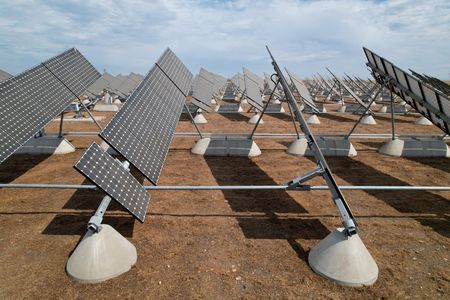By David Lawder
WASHINGTON (Reuters) – The U.S. Treasury on Monday said it has been overwhelmed by applications for bonus clean energy tax credits in low-income communities, with officials estimating the energy generated by the proposed wind and solar projects would surpass this year’s targeted allocation by more than four times.
THE TAKE:
Clean energy tax credits in President Joe Biden’s 2022 Inflation Reduction Act were designed to offer a 10-20% bonus on top of the base 30% investment tax credit if projects are located in low-income communities, on Native American land or part of affordable housing projects. The aim was to drive investment to economically disadvantaged that have long suffered from job loss.
Data released on Monday shows robust demand for the extra tax credit, on projects estimated to be worth billions of dollars. With demand exceeding available capacity, Treasury will prioritize those with ownership by non-profits, local or tribal governments, or worker cooperatives, in addition to location criteria, a Treasury spokesperson said. The spokesperson added a lottery system may also be used for allocations meeting similar criteria.
BY THE NUMBERS:
During the initial 30-day application window, the IRA’s Low-Income Communities Bonus Credit Program received more than 46,000 applications for new wind and solar projects, representing more than 8 gigawatts of proposed capacity. The 2023 allocation for the program is only 1.8 gigawatts.
Clean energy developers will still get the base 30% tax credit for these projects if they proceed this year. They also may be able to wait for the 2024 program to open, for another 1.8 gigawatts of capacity.
KEY QUOTE:
“One of the goals of President Biden’s Inflation Reduction Act is to ensure all Americans benefit from the growth of the clean energy economy,” Deputy Treasury Secretary Wally Adeyemo said in a statement. “Sky-high demand for this new program shows that communities that have long been held back by lack of investment will see significant benefits from these resources.”
PROGRAM PARAMETERS
The program is available across four categories of qualified wind or solar facilities with a maximum output of less than five megawatts.
The Internal Revenue Service has announced its intention to allocate up to 700 megawatts of capacity in low-income communities; 200 megawatts to Indian lands, 200 megawatts for federally subsidized residential buildings; and 700 megawatts for projects where half the financial benefits go to low-income households.
The IRS may choose to reallocate some 2023 program capacity between categories, the Treasury said.
(Reporting by David Lawder; Editing by Aurora Ellis)

